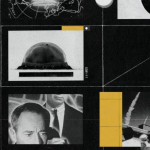Faith leaders nationwide are hopeful that a bipartisan bill recently introduced in the US Senate and House will finally address an immigration issue that has hindered their capacity to serve their communities for more than two years. In March 2023, the Biden administration abruptly altered the government’s green card policies, impacting both abused children and religious workers. The additional backlogs it created have put thousands of U.S. pastors, nuns, imams, cantors, and others at risk of losing their jobs. The plan only tackles a small part of the issue, which the politicians who are supporting it hope will increase the chances that it would pass, despite the fact that immigration is still one of the most contentious issues in the country. Religious leaders believe that even a minor fix will be enough to prevent harm to congregations and to start planning for the future.
“Unless there is a change to current practice, our community is slowly being strangled,” said the Rev. Aaron Wessman, vicar general and director of formation for the Glenmary Home Missioners, a small Catholic order that ministers in rural America. “I will cry with joy if this legislation passes,” he said. “It means the world to our members who are navigating uncertainty and to the people they will be able to help.” “The current immigration issue affects two-thirds of Glenmary’s foreign-born priests and brothers under fifty, mainly from Kenya, Mexico, Nigeria, and Uganda,” Wessman said. For followers of the many religions practiced in the United States, such as Islam, Hinduism, and evangelical Christianity, thousands more offer pastoral care and social services. There are no exact numbers, but it is estimated that thousands of religious workers are either backlogged in the green card system or have not yet been able to apply.
How pastors apply for green cards and the causes of border crossing backlogs Congregations use R-1 temporary visas to bring religious workers to the United States, allowing them to work for up to five years. Congregations used to have enough time to apply for green cards under a special category called EB-4, which would have allowed the clergy to establish permanent residences. Green cards, which are almost exclusively classified based on the types of jobs or family ties to US citizens, are subject to an annual cap set by Congress. In most categories, demand exceeds the annual allocation. Married Mexican children of US citizens have been the most backlogged category for a number of years; only petitions filed more than 24 years ago are currently being processed. Separate, usually longer lines are formed for citizens of countries with extremely high demand. There was also a separate line for Guatemalan, Honduran, and El Salvadorian children who were migrants with Special Immigrant Juvenile Status, meaning they were neglected or mistreated minors. Although the Trump administration has recently tightened its regulations, hundreds of thousands of people have applied for asylum or humanitarian green cards after entering the US illegally since the mid-2010s. In March 2023, the State Department suddenly started putting minors in line with clerics for general green cards. In April, only halfway through the current fiscal year, those green cards were no longer available due to this delay. Additionally, when they become available in the new fiscal year starting in October, they will likely be caught in the six-year backlog they faced earlier this year. This implies that religious workers with pending applications will not be granted green cards before their visas expire after five years, forcing them to depart the country. In a report released Thursday, US Citizenship and Immigration Services said it had found widespread fraud in the EB-4 program and blamed the backlogs on the rise in applications from children in Central America.
Providing a limited remedy to allow clergy who are foreign-born to remain in the United States Bill The Senate and House legislation would allow the Department of Homeland Security to extend religious workers’ visas while they are still applying for a green card. They would also prevent minor career changes, like moving from associate to senior priest or being assigned to a different parish within the same diocese, from nullifying the pending application. “We think this fix is narrow enough, and the stakeholder group we have is significant enough, that we’re hoping we can get this done, even though immigration issues are controversial and sometimes they run afoul of partisan politics,” said Democratic Senator Tim Kaine of Virginia, who introduced the Senate bill in April after learning about the problem in his parish in Richmond. Two of the last three priests there were foreign-born, he said, and earlier this month a sister with the Comboni missionaries approached him, worried that her visa was about to expire. Kaine’s two Republican cosponsors, Sens. Jim Risch of Idaho and Susan Collins of Maine, heard from voters worried about the loss of many religious leaders. It raises their quality of life. “There is no reason why they shouldn’t have this,” Risch added. Because religious ideas are so universal, it is advantageous to have people who … want to come here and want to associate with Americans of the same faith. As a result, we want to take every possible step to facilitate that process. Along with Democratic and Republican colleagues, Republican Representative Mike Carey of Ohio sponsored a similar bill in the House. Both pieces of legislation are still being considered by the relevant judicial committees.
“To be honest, I don’t know what objections people could have,” said Lance Conklin, adding that the plan does not call for new green cards but rather simply extends the validity of existing visas. Conklin is co-chair of the religious workers section of the American Immigration Lawyers Association and regularly represents evangelical pastors. Religious leaders claim that there is an urgent need for foreign-born religious staff. Religious denominations, ranging from Buddhism to Judaism, employ clergy from other countries to cater to their growing non-English speaking congregations.
These clergy members were often educated at religiously oriented foreign universities. For many, it is also a necessity due to the shortage of clergy. According to the Georgetown University-affiliated research organization, the institution for Applied Research in the Apostolate, the number of Catholic priests in the United States has dropped by roughly 40 percent since 1970. But some dioceses are experiencing a spike in vocations, while others hope that more will be inspired by the recent election of Leo XIV, the first pope to be born in the United States. Last summer, five priests from the Diocese of Paterson, which has 107 parishes and 400,000 Catholics spread across three New Jersey counties, sued the Department of Homeland Security and US Citizenship and Immigration Services. The lawsuit claims that the 2023 modification will “severely and substantially disrupt the lives and religious freedoms of the priests and the faithful they serve.”
The government initially believed that the Department of State was correct to make that change, according to court documents. The diocese’s attorney, Raymond Lahoud, said the parties agreed to put the case on hold while they awaited some legislative action. However, the measures were not included in the nearly 900-page, comprehensive legislation that Congress passed and President Donald Trump signed into law earlier this month, which is why the case is still pending, Lahoud said. “We just can’t wait any longer,” he said.
The Associated Press funds its coverage of religion through Lilly Endowment Inc. and its collaboration with The Conversation US. The AP is solely responsible for this content.















